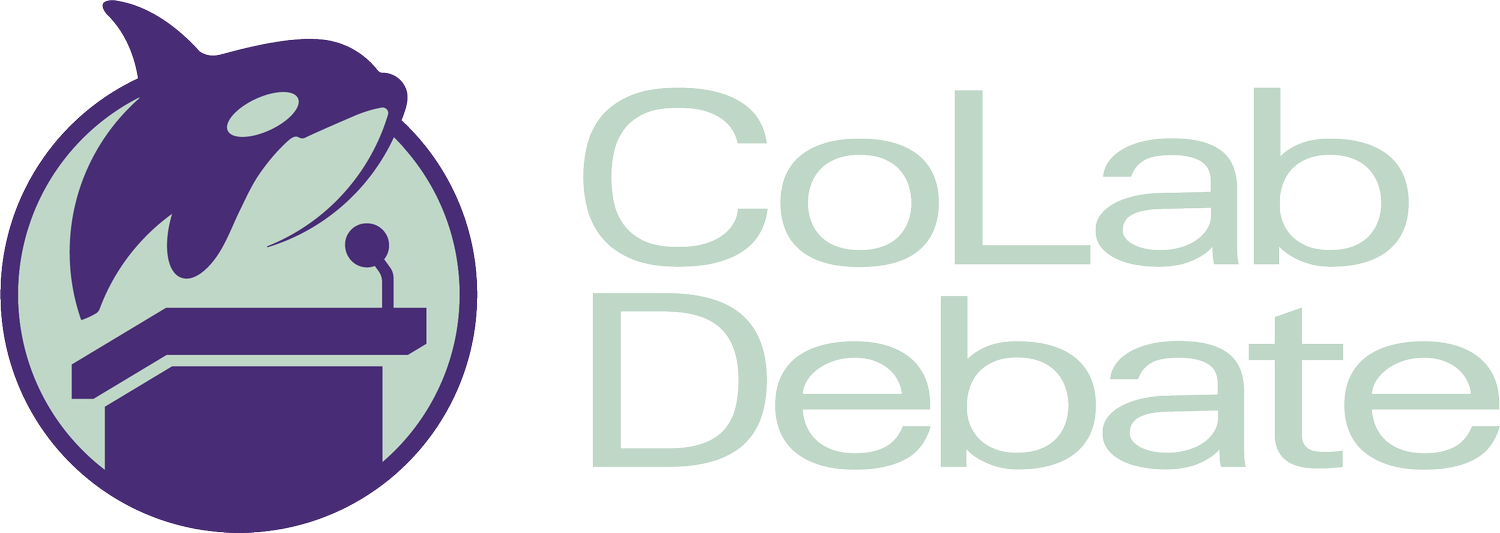Debate Students Need More Than Just Passion to Become Organizers
A supporter of CoLab Debate recently asked us a great question: “Given that debate students often go into community and public interest work now, can you say more about why we need a national organization to get them there? Some would point out that many of these students make it on their own just fine.”
It’s true that some debate students are already engaged in community activism and will pursue such egalitarian work when they finish school. They often speak out, mobilize peers, and take action. Continuing that work into adulthood might be a complement to their careers or more foundational. Their passion is evident, their sense of purpose strong, and they bring the skills they’ve developed from their participation in speech and debate. We at CoLab know these students, because many of us were such students.
But there are two reasons, each with their own kind of urgency, why we need not just debate skills and activist passion, but also the dedicated space and curriculum CoLab provides:
First, opportunities to turn this passion into life work are too often left to chance. The infrastructure to support youth-led organizing is fragmented or nonexistent. Students may graduate with powerful instincts for justice but without the strategic frameworks, coalitional habits, or trauma-aware practices needed to sustain their work. Debate teaches argumentation, but not always how to build durable campaigns, navigate burnout, or move from protest to policy.
Second, our democratic and educational institutions, once assumed to be stable foundations for civic life, are now under accelerating attack. The very systems meant to cultivate future advocates are being hollowed out: school boards are politicized, curricula censored, libraries defunded, and public trust eroded. The rules of engagement are shifting beneath our feet, and the norms that once protected democratic participation are no longer guaranteed. We cannot say with confidence what civic education, public discourse, or even electoral legitimacy will look like three years from now (perhaps not even three months).
This uncertainty is not abstract. It directly impacts the students we serve. When institutions falter, young people lose access to the mentorship, resources, and public platforms that make organizing possible. They are left to navigate civic life without maps, without anchors, and often without allies. CoLab Debate exists to counter that erosion, not by restoring a past that no longer exists, but by building new infrastructure rooted in resilience, equity, and collective strategy. We teach students how to organize not in ideal conditions, but in contested ones.
CoLab Debate was founded not to manufacture democratic participation, but to support, sustain, and secure it. We don’t believe in gatekeeping community organizing. But we do believe in scaffolding it. Why?
Because we’ve seen firsthand how activist energy can be transformative, and how easily it can be undermined by burnout, isolation, or lack of access.
Because we’ve seen how those with the most to offer in terms of energy, creativity, and vision so often need training in collaboration and strategic structure. Passion gets them to the door; organizing skills help them walk through it and bring others along.
Because not all students have the same starting point. Some attend schools with robust civic programs and supportive mentors. Others are navigating trauma, underfunded classrooms, or communities where organizing is stigmatized or even punished.
So CoLab Debate creates space. CoLab students connect across schools, regions, and identities. They learn from experienced organizers, share strategies, and build networks that last beyond a single protest or policy cycle. That kind of collaboration doesn’t happen by accident; it happens when we invest in it.
Yes, some students make it on their own. But we believe they shouldn’t have to, and that many more would succeed if they had a network supporting them. When we build structures that create access rather than just facilitate it, we don’t just empower individuals. We strengthen future movements for positive change.
We’ve called CoLab Debate a new garden next to the traditional debate garden. Everything we grow in the CoLab garden is collaborative and community-oriented. Our unique toolset for cultivating that garden includes a collaborative debate curriculum, training in grassroots organizing and a stakeholder-agency approach to communication and critical thinking. We’re led and advised by debate alumni who took debate skills into the world of community and public engagement and used them to make an impact, and who want to help the next generation do the same. CoLab is the organization we wish we’d had, and which we think is needed now more than ever.
